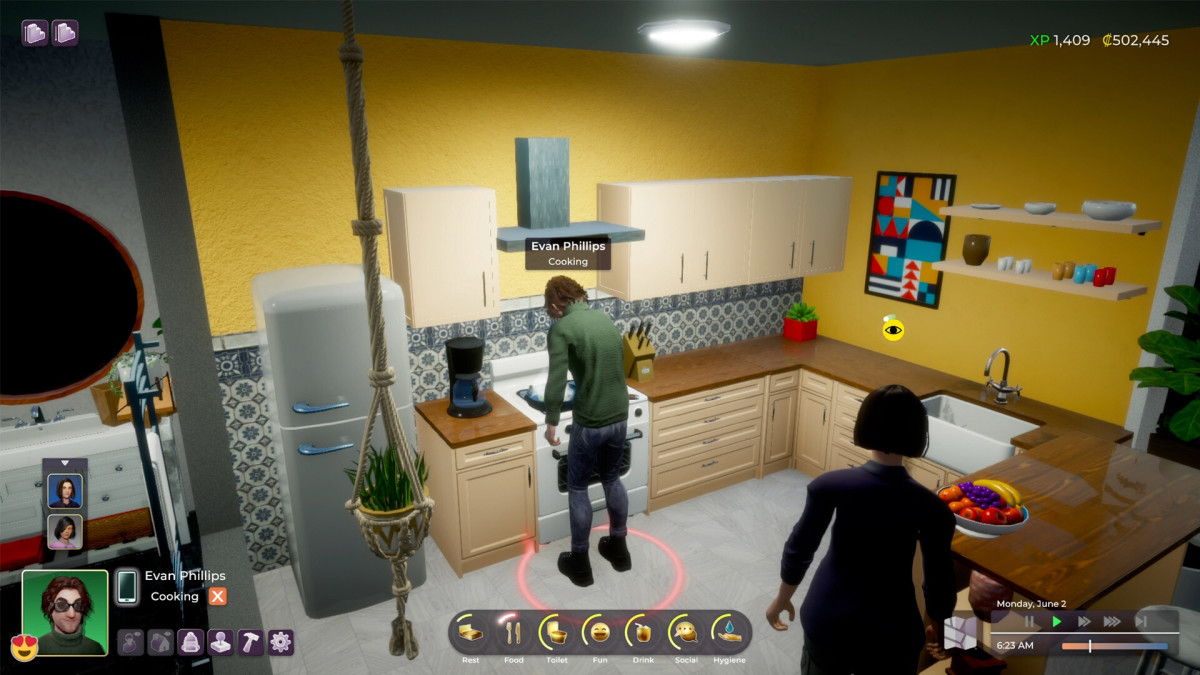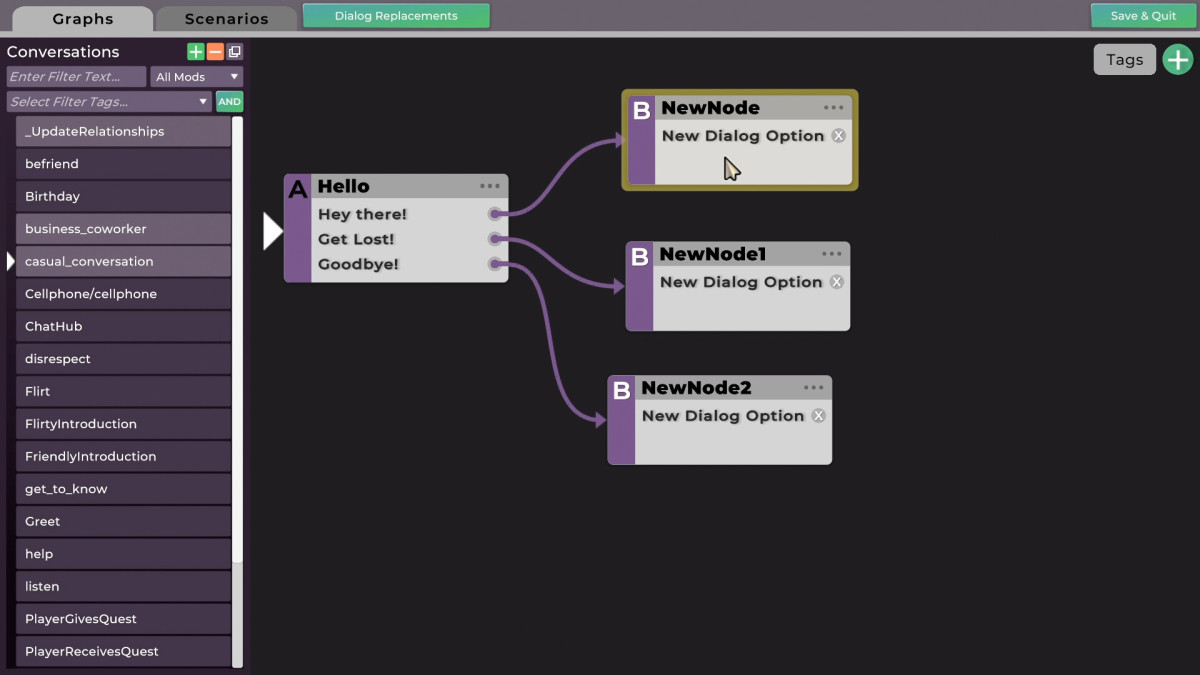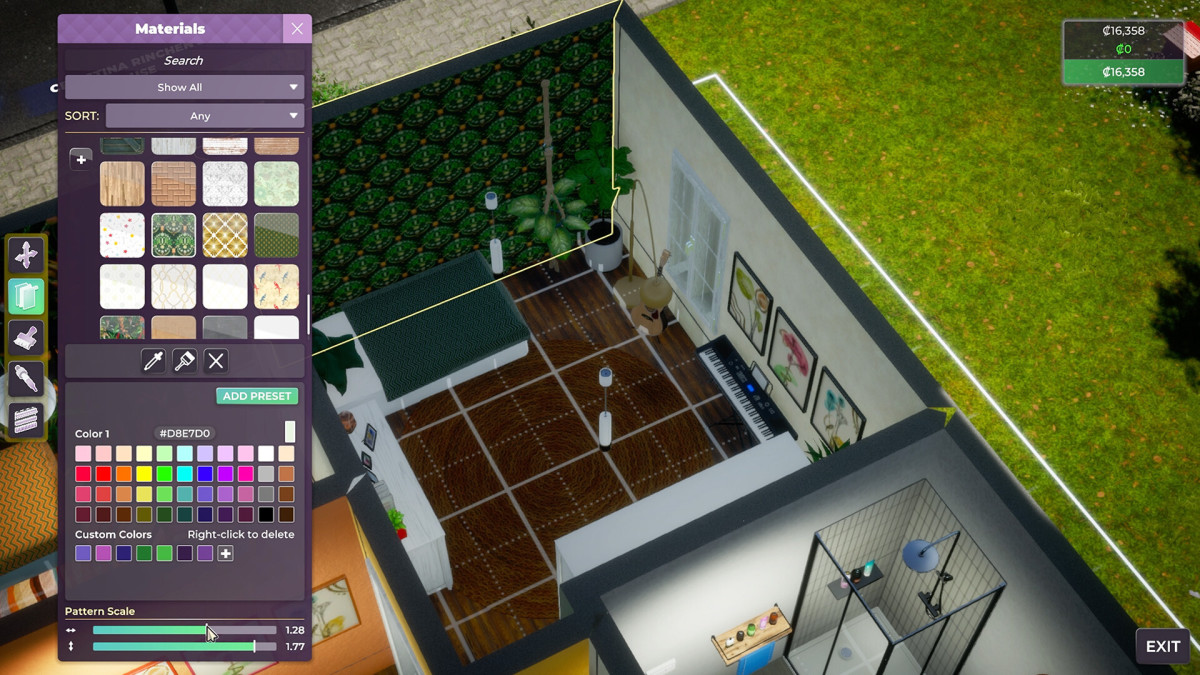Life By You could lock The Sims in a swimming pool and delete the ladder

Rod Humble is telling me that Life By You is the biggest game he has ever worked on. That might sound like a funny statement coming from a man with that surname, but there isn’t a hint of bravado in his voice. It just is.
The developer, who now heads up Paradox Tectonic, was previously head of The Sims Label at EA, so it’s a pretty bold statement to make. But EA might be on the cusp of being usurped if Life By You can live up to its lofty ambitions.
The biggest difference between this new game and The Sims is how it takes place in a fully open world. When humans go off to work in The Sims, they exit the screen for a set number of hours before returning to their homes. In Life By You, they actually go to a place of work located in the world and you can see them going about their business. Everything happens where you can witness it.
“It's important because what it enables you to do is have a unified time,” Humble explains. “When you have a truly open world, it means that time can be the same for every agent, and all of our agents in the game are being simulated at the same time. What that enables you to do is, for example, walk into your office at work. And when you see your office mates, they have got a home, they might be your next-door neighbors, they have got a life, they've got relations.”

Click on one of your workmates and you can even take them over and decide to play as them instead, seamlessly.
“In most computer games, I think there's a there's an expectation that players have,” Humble says. “When I see that hilltop, I can go to the top of it. We wanted that experience.”
It’s all about authenticity. Rather than creating a fictional language for these humans – as EA does with Simlish in The Sims – this is all overlaid with dialogue trees and options. When your human is chatting with someone, you can get involved and choose what responses and questions you want. Getting a job, getting married, having kids – it’s all there if you just ask (and they don’t hate your guts).
“In most life simulators, the gameplay is fundamentally based on Maslow's Hierarchy of Needs,” Humble says. “If you're hungry, you get food. If you're tired, you go to bed. So obviously we've got all of that, [but we] also expanded the metaphysical gameplay because that's where a lot of modern life is played. The only way we could do that is with language. [Ludwig] Wittgenstein said, ‘The limits of my language mean the limits of my world.’ I buy into that. You need to be able to express complex thoughts in language to be able to model complex emotions.”
Underpinning all of this are hundreds of thousands of lines of dialogue. So much so that, when Humble played recently, it managed to surprise him when his in-game child told him that they wished he wasn’t their dad. Just like my real life.

“You can make friends with them, you can have romantic interactions with them, you can ask them to teach you skills, or you can teach them skills, you can ask them to improve your relationship with a third person,” Humble says. “And that's quite important because often that's how friendships work, like, ‘Hey, I think that person's super hot.’ You can get pregnant, you can die, all of the bodily functions are there.”
Because it’s an open-world game, you can even hop into a car or onto a skateboard to get around more quickly. Controlling this can be as simple as clicking to move, or you can take direct control and move your character around the world in first- or third-person.
If you don’t play these games as a life sim and you prefer to just build cool houses, Life By You has that too. You can either start with a prefab created by the developers and other community members, or you can start from the foundations up. Choose a space on the map and plonk your dream house down, tweaking colors and editing the layout as you see fit. But it doesn’t stop at houses – you can also build hangouts and workplaces and massive complexes. There are very few limits. One of the game’s developers built a 12-storey tower that poked through the clouds just to see if they could. Reader, they could.
The game ships with the studio’s internal scripting language, allowing you to edit the logic of every single item in the game. Modders are going to go wild with it. Humble tells me that there was a bug during development that created a 10,000ft tall baby crib. How long until someone makes the chunky baby?
If The Sims has taught us anything, people will do weird things with children in these kinds of games. I ask Humble if the team plans to support strange community challenges that crop up, like the 100-baby challenge in The Sims, where players race to spawn 100 sprogs before they pop their clogs. Life By You comes with its own quest editor, so players can make challenges like that an official part of their experience, complete with incentives for succeeding. It’s all about letting people play however they want to. Players who want to mess around in a sandbox can generate money with a few clicks of the mouse. If you want to see progression, you can limit your money and build up a life from a white-collar worker to CEO of a company.

“We have hotel jobs, retail jobs, hairdressing, salon, finance, regular white-collar jobs – all of that with progression – out of the box,” Humble explains. “But we also ship with an entire career and job editor and creation tool so you can make brand new jobs from scratch. So If you want to make a store that just sells balloons, you can do that.”
Life By You certainly seems like it lives up to its title. It’s a proper sandbox where you can play however you like. If you want to create your own sitcom to stream to the world, it’s completely possible with the tools. Fancy living in a utopia where everyone loves you and you’re rich? Go ahead. The kinds of things that are possible here, people have been doing for years in The Sims, but they’re usually fighting against the game’s constraints to get them working. Life By You is built to cater to your every need.
“My general philosophy has become more player first,” Humble says. “I’ve made a lot of games where I want you to play my game, I want you to have a great time. This isn't that game. This is a game where we are in the backseat, and we are trying to help players tell their stories. And wherever possible, we're trying to get out of the way.
“As a game design professional, what excites me about this is, it's another opportunity for us to empower players to tell their stories. I think there's a big shift going on with gaming. We've been through that phase of the auteurs and like, ‘Oh my god, this genius can program a game and it's fabulous.’ [In movies] nobody really cares about who was behind the camera, they care about the stars, and, in our case, the stars in the players.”
